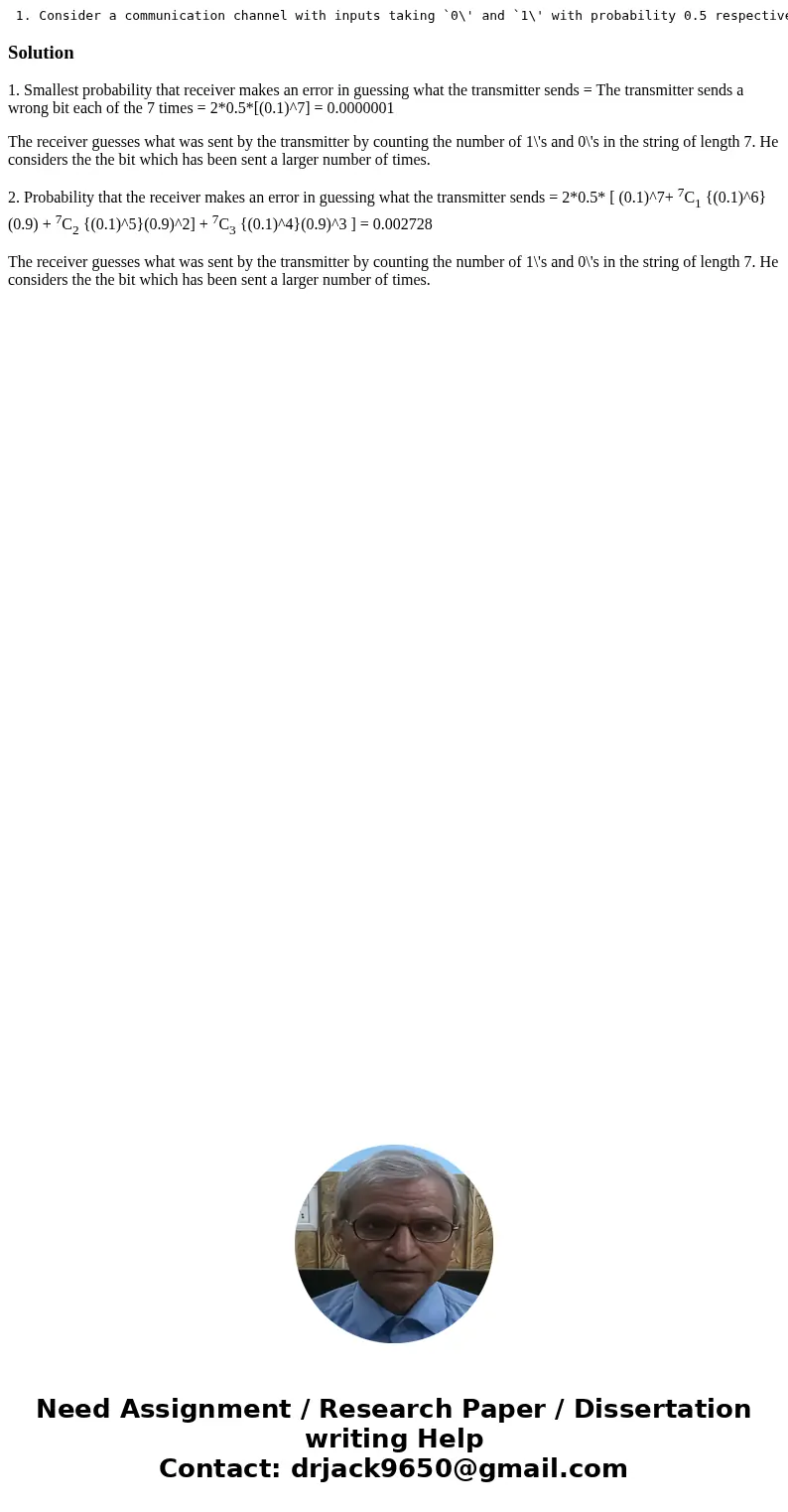1 Consider a communication channel with inputs taking 0 and
1. Consider a communication channel with inputs taking `0\' and `1\' with probability 0.5 respectively. Each time a \'1\' is input into the channel, the receiver will receive `1\' with probability 0.9 and `0\' with probability 0.1. Each time a \'0\' is input into the channel, the receiver will receive `0\' with probability 0.9 and `1\' with probability 0.1. Suppose each time a bit is transmitted, the transmitter repeats that bit 7 times, then what is the smallest probability that the receiver makes an error in guessing what the transmitter sends? How does the receiver guess whether a \'0\' or \'1\' was sent by the transmitter? 2. Consider a communication channel with inputs taking `0\' and `1\' with probability 0.5 respectively. Each time a \'1\' is input into the channel, the receiver will receive `0\' with probability 0.9 and `1\' with probability 0.1. Each time a \'0\' is input into the channel, the receiver will receive `1\' with probability 0.9 and `0\' with probability 0.1. Suppose each time a bit is transmitted, the transmitter repeats sending that bit 7 times, then what is the probability that the receiver makes an error in guessing what the transmitter sends? How does the receiver guess whether a \'0\' or \'1\' was sent by the transmitter?
Solution
1. Smallest probability that receiver makes an error in guessing what the transmitter sends = The transmitter sends a wrong bit each of the 7 times = 2*0.5*[(0.1)^7] = 0.0000001
The receiver guesses what was sent by the transmitter by counting the number of 1\'s and 0\'s in the string of length 7. He considers the the bit which has been sent a larger number of times.
2. Probability that the receiver makes an error in guessing what the transmitter sends = 2*0.5* [ (0.1)^7+ 7C1 {(0.1)^6}(0.9) + 7C2 {(0.1)^5}(0.9)^2] + 7C3 {(0.1)^4}(0.9)^3 ] = 0.002728
The receiver guesses what was sent by the transmitter by counting the number of 1\'s and 0\'s in the string of length 7. He considers the the bit which has been sent a larger number of times.

 Homework Sourse
Homework Sourse